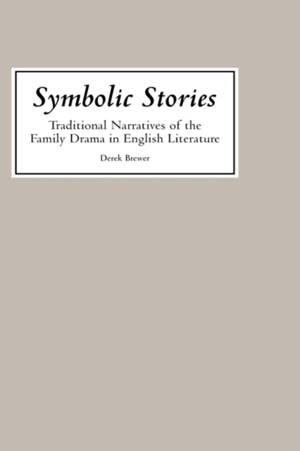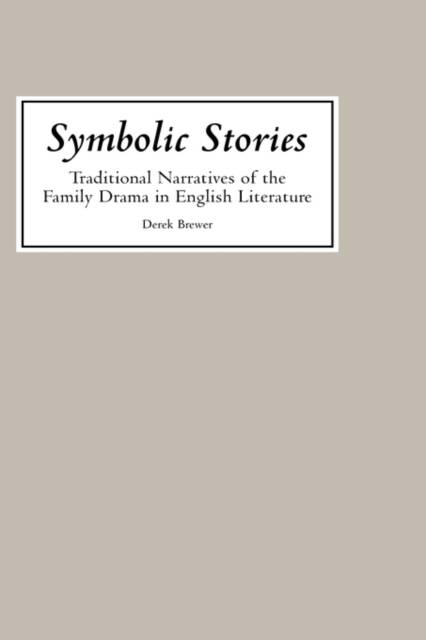
- Retrait gratuit dans votre magasin Club
- 7.000.000 titres dans notre catalogue
- Payer en toute sécurité
- Toujours un magasin près de chez vous
- Retrait gratuit dans votre magasin Club
- 7.000.000 titres dans notre catalogue
- Payer en toute sécurité
- Toujours un magasin près de chez vous
Symbolic Stories: Traditional Narratives of the Family Drama in English Literature
Derek Brewer
Livre relié | Anglais
177,45 €
+ 354 points
Description
Analysis of the structure of traditional stories and fairytales, bringing out their shared characteristics, and showing why they remain so powerful and resonant today. Many famous stories, from the Old Testament, medieval romance and folktale, to Shakespeare's tragedies and comedies and even some great novels, present apparent inconsistencies or absurdities when judged as plausible representations of 'reality'. Yet the experience of many generations of readers and listeners is that such stories take a powerful hold on the imagination and memory, and create a strong impression on coherent significance. Symbolic Stories shows why the structure of these tales is so significant, and why they are repeated, both in the original and with variations, down the ages. Professor Brewer reveals new aspects of the stories themselves by elucidating the implicit and symbolic meanings that lie below the literal narrative. The stories discussed are those that are especially concerned with the processes of growing up and coming to maturity. They are told from the point of view of the emerging individual as he or she passes through the rites de passage that allow disengagement from parents, self-realisation, the establishment of new relationships, and integration with society. The bookdemonstrates certain characteristic themes and structures in these traditional stories, but is far from reducing them to a single formula. One of the main purposes is to show how selected stories of great artistic value establishtheir own individual meanings within the general pattern. There are new interpretations of the famous romances, Sir Gawain and the Green Knight, and Malory's Tale of Sir Gareth, and of other romances. Shakespeare'sremarkable portrayals throughout his career of various aspects of the family drama are discussed, and the essence of a new theory of tragedy and comedy is suggested. The extreme type of traditional story in Europe is seen as the fairy tale, which is analysed to show how fundamentally such narrative differs from the novel, but Mansfield Park and Great Expectations are explored in detail to show their equivocal relationships to the tradition. The book will appeal to all those who are interested in the structure of narrative, whether from the point of view of literature, psychology or folklore. The late Professor Derek Brewer was Master of Emmanuel College Cambridge and Reader in Medieval English Literature in the University of Cambridge. He published numerous books and articles, especially on Chaucer, but on all periods of English literature.
Spécifications
Parties prenantes
- Auteur(s) :
- Editeur:
Contenu
- Nombre de pages :
- 200
- Langue:
- Anglais
Caractéristiques
- EAN:
- 9780859910637
- Format:
- Livre relié
- Format numérique:
- Genaaid
- Dimensions :
- 156 mm x 234 mm
- Poids :
- 462 g







